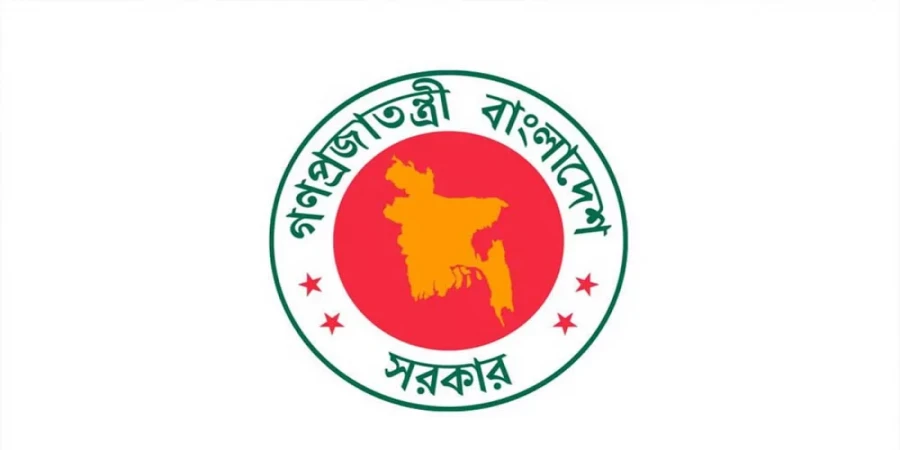
ছবি: Photo: Collected
The interim government of Bangladesh has announced a significant restructuring of the country’s revenue administration by dissolving the long-standing National Board of Revenue (NBR) and replacing it with two distinct divisions: the Revenue Policy Division and the Revenue Management Division, both under the Ministry of Finance. This move, described as a landmark institutional reform, was explained through an official statement released on May 13 by the Press Wing of the Chief Adviser’s Office on its verified Facebook page.
According to the statement, the primary objective behind this reformation is to increase the efficiency of the revenue system by separating tax policy formulation from revenue collection and administration. This separation aims to reduce systemic conflicts of interest, enhance institutional accountability, and ultimately expand the tax net to meet the country’s growing development needs.
The statement emphasized that the National Board of Revenue, established more than five decades ago, has consistently failed to meet its revenue targets. Bangladesh’s current tax-to-GDP ratio stands at approximately 7.4%, one of the lowest in Asia, compared to a global average of 16.6% and 11.6% in countries such as Malaysia. The government maintains that increasing this ratio to at least 10% is essential for achieving the nation’s development ambitions and that such progress is unattainable without substantial reform of the existing tax structure.
The interim administration asserted that placing both policy-making and implementation functions within a single institution has created substantial governance challenges. Combining the authority to draft tax laws with the responsibility of enforcing them has led to recurring conflicts of interest, compromises in policy integrity, and widespread irregularities. Tax officials, often exempt from robust institutional accountability, have been known to make questionable compromises in the collection process, sometimes prioritizing individual or organizational interests over the public good. In many cases, they have either failed to take action against tax evaders or actively facilitated such practices.
Furthermore, the statement pointed out the lack of objective evaluation mechanisms for measuring the performance of tax officials. There is no structured framework to assess their effectiveness or to determine career progression based on measurable indicators. This absence of performance metrics has led to stagnation in both institutional efficiency and individual accountability.
The overlapping responsibilities of tax policy formation and capacity development within the NBR were said to have diluted the organization’s focus on both fronts. As a result, the tax net has remained disproportionately narrow, and revenue collection has consistently fallen short of its potential.
Another pressing concern highlighted was the NBR’s weak governance structure. The agency has struggled with inconsistent application of laws, inadequate facilitation for investors, and administrative inefficiencies—all of which have undermined investor confidence and the rule of law. The outdated organizational design, where the head of the Internal Resources Division also served as the chairperson of the NBR, was said to have created confusion and inefficiency, hampering effective policy-making and implementation.
To address these longstanding issues, the interim government has introduced a new structure with a clear division of responsibilities. The newly established Revenue Policy Division will focus exclusively on tax law formulation, rate setting, and the administration of international tax agreements. Meanwhile, the Revenue Management Division will oversee the implementation, audit, and enforcement of these policies. This separation ensures that the body responsible for creating tax laws will no longer be involved in their enforcement, thereby eliminating the scope for internal collusion and misuse of authority.
The government believes that the new structure will allow each division to concentrate on its core mandate, foster specialized expertise, reduce conflicts of interest, and enhance operational transparency. It is expected that the restructuring will help broaden the tax base, shift the focus from indirect taxation to direct taxation, and ensure the strategic deployment of skilled professionals in critical roles to improve tax compliance and collection.
In addition to improving administrative efficiency, the reform is aimed at modernizing the approach to tax policy. The newly formed dedicated policy unit will be tasked with developing long-term, forward-looking tax strategies rather than merely responding to short-term revenue needs. This shift is expected to create a more stable and predictable fiscal environment conducive to sustained economic growth.
Another key goal of the restructuring is to restore investor confidence. A more transparent and professional tax administration, supported by credible and consistent tax policies, is anticipated to attract greater private sector investment. The government hopes that with clearer lines of accountability and a modernized institutional framework, the recurring complaints from the private sector regarding arbitrary tax enforcement and policy unpredictability will be significantly reduced.
The interim government stressed that the decision to dismantle the NBR is not a superficial bureaucratic adjustment but a fundamental step toward building a fairer, more capable, and more development-oriented tax system. Strengthening the process of tax policy formulation and establishing a transparent revenue administration is seen as crucial to meeting the expectations and demands of the Bangladeshi people.
By making these structural changes, the interim government aims to lay the groundwork for a more equitable and efficient fiscal regime—one that can better support national development objectives, foster investor trust, and align with international best practices.
repoter






